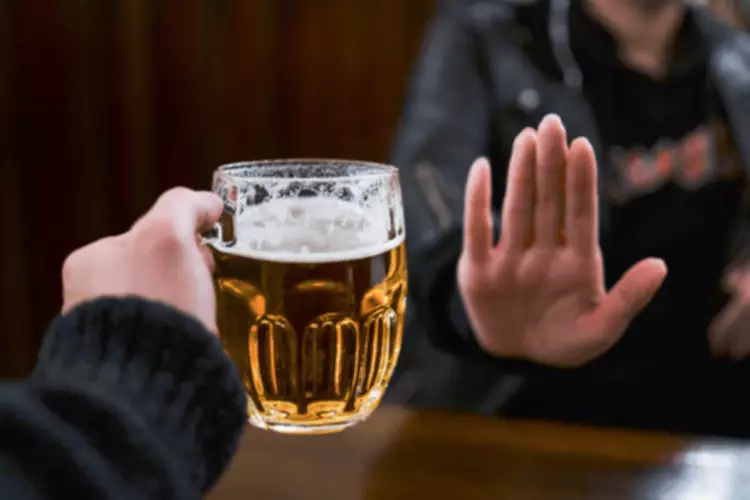
Sharing personal experiences with addiction recovery can be a powerful tool for inspiring and supporting others on their own recovery journey. A strong support system can be the key to successful sobriety, and those in recovery can draw on family, friends or peers for emotional backing. Whether it’s family, friends, or peers, having people who understand what you’re going through can provide the emotional backing needed to overcome obstacles. It’s about embracing holistic approaches that consider all factors influencing one’s relationship with alcohol rather than focusing solely on abstaining from its consumption. So, if you’re looking for an alternative to AA, consider exploring sober living programs. Some inspiring examples of online communities include Sober Grid, Recovery Dharma Online, and 7 Cups.
Can personal experiences with addiction recovery be helpful?

Actions that focus on mindfulness will make it easier to work through cravings and moments of temptation. Routines also impart discipline and self-restraint which is a particularly valuable skill recovering addicts will need to relearn. You don’t need to go through an organization or any other formal channels to find this type of community. It can be as simple as your existing friend group who checks in on each other through text, or commiserating with online strangers on a sobriety memes account on social media.
- There are many alternatives to AA that can help individuals overcome addiction and maintain long-term Sobriety.
- Journaling is also an effective tool to maintain focus during emotionally challenging periods by recording daily reflections, coping strategies, and purposeful gratitude lists.
- Actions that focus on mindfulness will make it easier to work through cravings and moments of temptation.
- It’s about embracing holistic approaches that consider all factors influencing one’s relationship with alcohol rather than focusing solely on abstaining from its consumption.
- So, for this milestone, I’d like to share some insight about the program of Alcoholics Anonymous based entirely on my own experience.
The Importance of Transparency During the Rehab Process
To learn more about Refuge Recovery and access their wealth of resources, visit their website, blog, and online meetings, or explore their worldwide centers. Some key takeaways to keep in mind include finding a support system that works for you, whether it be therapy, online forums, or support groups. It’s also important to develop healthy coping mechanisms to manage stress and triggers, such as exercise, mindfulness, or creative outlets. Thus, AA attendance levels were high in the inpatient hospital condition in the former study, and in the CBT and MET conditions among the Project MATCH aftercare subjects.
Signs You Need to Update Your Resume Right Now: Revitalize Your Career Today
- If you’re a Workit Health member, you can self-enroll in groups through the Community tab in our app.
- Bear in mind that dealing effectively with relapses isn’t just about bouncing back after each setback – it’s equally vital to continually refine strategies based on lessons learned from previous experiences.
- Many of the activities that make for a healthy routine are also effective for relapse prevention.
- There are several alternative programs to AA for staying sober, such as SMART Recovery, Refuge Recovery, and Women for Sobriety.
Personal growth and goal setting provide structure and purpose to your recovery journey. They help fill the void left by substance use and create a fulfilling, sober life. By setting achievable goals and pursuing personal development, you’re not just staying sober—you’re thriving in sobriety.

Can you stay sober without AA?
The study sample(s) and citation(s) are summarized at the bottom of each figure. The strategies we’ve explored offer a roadmap for maintaining sobriety in 2024 and beyond. From building support networks to focusing on personal growth, each step is crucial for long-term success.
- The fundamental belief of Alcoholics Anonymous, which is that we shouldn’t drink alcohol 100% of the time, works.
- The article discusses the importance of self-help approaches in achieving sobriety without AA.
There are many paths to changing your relationship with alcohol, and it may take some experimentation to figure out what treatment—or combination of treatments—is most effective for your unique needs. Though AA may be the most well-known solution staying sober without aa for alcohol abuse, it is far from the only one. There are many alternatives to Alcoholics Anonymous, including The Sinclair Method, moderation, cognitive behavioral therapy, therapy, coaching, and Medication Assisted Treatment (MAT). The program is based around the Twelve Steps to help its members achieve complete abstinence from alcohol use. AA’s free and anonymous meetings are available in over 180 countries and more than 100 languages. There are so many trained coaches, counselors, and psychologists out there happy to support you on your recovery journey, many of whom are in recovery themselves or whose lives have otherwise been touched by addiction.
Develop Sober Friendships
Many people have found success with SMART’s alternatives to AA meetings. AA If you like the accountability and community of regular meetings, SMART Recovery may be a good option for you. Recovery from alcohol or drug addiction is a personal journey, and no two people’s paths will look similar. For many years, the accepted options were to send folks to 30-day inpatient treatment or told them to go to AA. But there are other options, and as a society, we’re beginning to accept that those other options work. Practically every person in recovery has people, places, and experiences that bring up the urge to drink.
If you are able to maintain moderate drinking, it may work for you. But if you find yourself falling into previous unhealthy drinking habits, abstinence may be your better option. No matter what your sobriety journey looks like, a supportive community can be crucial to sticking with it.
Clinical care

In terms of sobriety, it is essential to know that even if all you want is to believe in yourself, you are on the right track. Still, if you’d like to believe in yourself, you have what it takes to do it. Similarly, if you’d like to be sober but aren’t sure if you can do it 100%, you are already on the right path. Write your blog posts, eat your cake, and put yourself on the pedestal for a while. The people who cannot understand your moments of pride in sobriety aren’t the ones you need around you anyways. I assure you that if you surround yourself with other sober people, they will understand why you feel proud of what you’ve accomplished and (usually) celebrate with you.